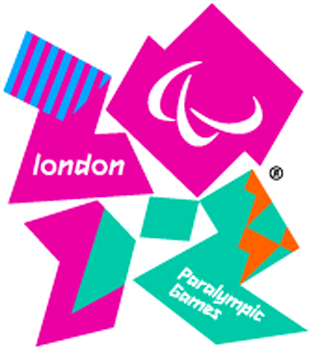Eye Appointment for Iran: No Secret Message in 2012 Olympics Logo
July 23, 2011
Published: March 30, 2011
In 2012, I am told, the world is going to end. Well, that’s sad and a slight cause for concern, but before that happens, something even more exciting is going to happen that year—the summer Olympics! This time the games are taking place in London, and I can’t emphasize how stoked I am for their arrival. Yes, “stoked.”

The Olympics are the one time when the world is supposed to drop any hard feelings and just compete against each other on the basis of pure talent and perfected skill. Yet it seems no Olympic games come without some form of controversy, whether it be countries refusing to partake or a slight bit of cheating slipping through the cracks (China and your female gymnasts of 2008). However, 2012’s games haven’t begun yet and people have already started stirring up trouble—not about rules or regulations, but about the logo for the games.
The logo is simply the number 2012, with the 20 on top and the 12 on the bottom in a boxy jagged font and bright glaring colors. It’s hardly attractive and looks more like subway graffiti than an Olympic logo, but I guess there’s only so many ways to make four numbers interesting.
While numerous people have complained about the logo and asked for it to be redone, others are more concerned at the supposed hidden messages within the logo. Hidden messages, you ask? Who hides hidden messages in an Olympics logo?
The truth is, no one, but apparently the Iranian government thinks something suspicious is going on. In fact, they’ve even filed a formal complaint against the logo and have threatened to withdraw from the games if it is not remade.
If the leaders of Iran were protesting the logo based on pure disgust with its ugliness, then maybe I’d humor them. But according to Iran’s National Olympics Committee’s attorney general Bahram Afsharzedeh, the logo spells out the word “Zion.” That’s odd, since I thought it was supposed to be “2012.” But what do I know? I’m just one of millions of average people who look at this logo without the intention of finding a reason to complain.
Even if the logo does happen to resemble Zion (which it most certainly does not), then why should Iran care? Well, folks, Zion is the biblical term for Jerusalem. Zionism is the fundamental belief upon which Israel was founded. And Iranian President Mahmoud Ahmadinejad? He doesn’t like Israel too much, so if a time ever arises when he can openly show his disdain for the country, he’s not likely to pass it up.
In an issue released by their Olympics committee, Iranian officials claimed that the logo expresses partiality towards Israel, and in the Olympics, no one country is supposed to be shown favoritism. Yet the problem still remains that the word “Zion” is definitely not hidden in the logo— unless one lines the numbers up horizontally, backwards and puts the number two upside down. If Iran has actually taken the time to do this, then kudos to them for thinking outside the box in their determination to find some way to boycott an event as unifying and peace-keeping as the Olympics.
Granted, others have also found problems with the logo: some have found that if you switch the numbers around, you can find the word “Izzo,” which apparently is a nickname for Jay-Z. I’ve yet to hear him complain though. Others have even said it too closely resembles a swastika, as well as the sign of the Waffen SS, the Nazi’s secret police.
Clearly, this logo is hardly a success any way you try to look at it. What’s even worse about Iran’s complaint is that it’s four years too late. Wolff Olins, the designer of the logo, released it in 2007. Iran’s recent outcry suggests the country is operating four years behind the rest of the world, addressing concerns at their leisure. If Iran expects Olins to go back to the drawing board now, they have another thing coming.
While I don’t think the logo looks like Zion and am only slightly convinced it merits comparison to a swastika, I will admit that this logo just seems to be an all-around failure. Yet I find it ridiculous that Iran’s National Olympics Committee actually thinks the rest of the world will take its whining seriously. Iran only won two medals in the last summer Olympics—it’s not as though their not being in the games would cause a big blow to the system. Still, the Olympics are supposed to bring the world together, and Iranian athletes deserve the same shot at success that everyone else gets. If Iran allows themselves to get caught up on heinous conspiracy theories such as this one, the only group of people they’re hurting is their own.









